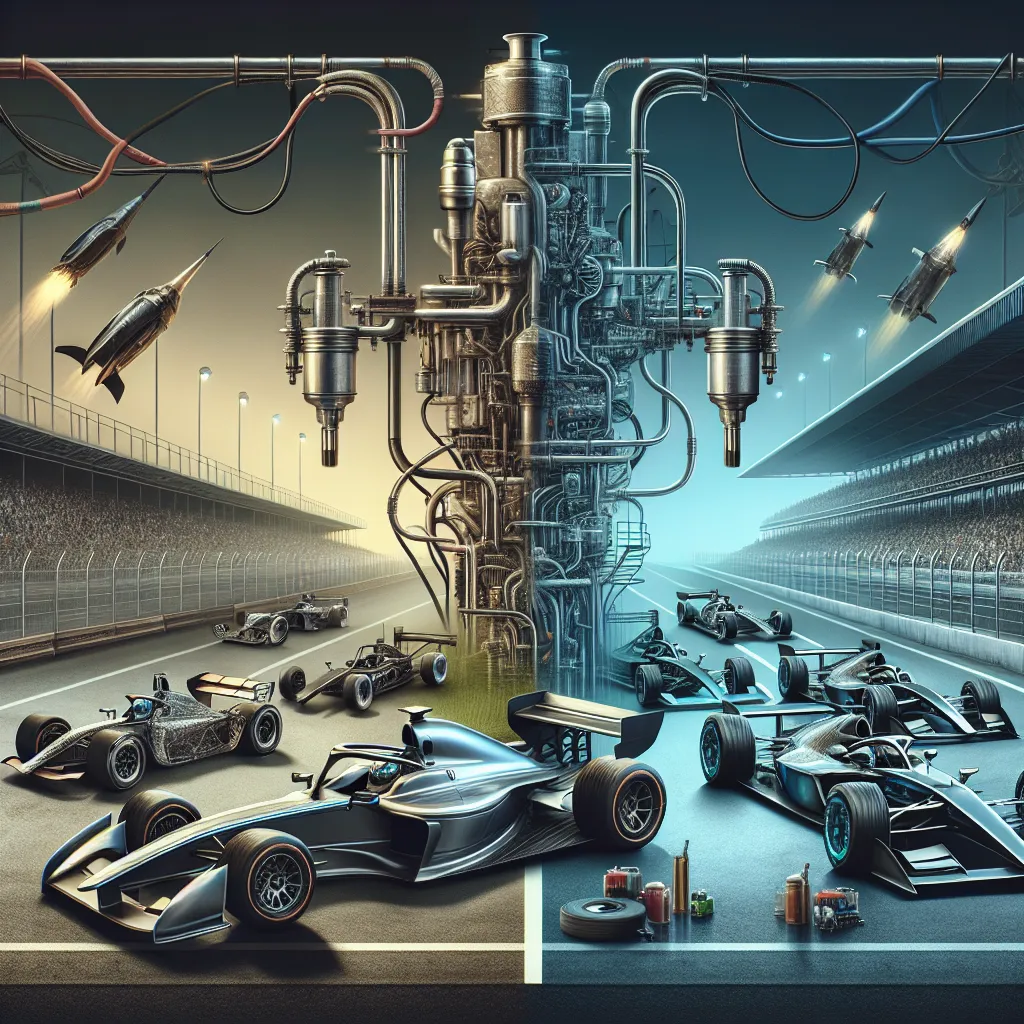Revolutionizing Speed: The Transition from Horsepower to Electric Power in Racing
Revolutionizing Speed: The Transition from Horsepower to Electric Power in Racing
The world of racing has undergone a dramatic evolution over the years, especially with the revolutionary shift from traditional horsepower to electric power. This transition has not only transformed the way races are conducted but has also brought about a profound change in the technology used in racing vehicles.
The traditional internal combustion engine, powered by fossil fuels, has long been synonymous with racing. However, with growing concerns about environmental sustainability and the need for cleaner energy sources, the racing industry has embraced electric power as a viable alternative. Electric racing cars are becoming increasingly prevalent in various racing events, showcasing the significant advancements in electric vehicle technology.
The shift to electric power has not only redefined the concept of speed in racing but has also opened up new avenues for innovation. Electric powertrains offer instantaneous torque delivery, leading to unprecedented acceleration and higher top speeds. Moreover, the quiet yet potent performance of electric racing cars has challenged the traditional notion of the auditory thrill associated with racing, providing a unique sensory experience for drivers and spectators alike.
Furthermore, the adoption of electric power has catalyzed the development of cutting-edge battery technology and charging infrastructure, addressing the limitations that were initially associated with electric vehicles. This has not only propelled the evolution of racing technology but has also accelerated the mainstream acceptance of electric vehicles in the automotive industry as a whole.
As racing continues to embrace electric power, it is evident that the landscape of motorsport is undergoing a profound transformation. The transition from horsepower to electric power represents a pivotal moment in the history of racing, emphasizing the industry’s commitment to sustainability, innovation, and unparalleled speed.
Unleashing Innovation: The Advancements in Racing Technology Throughout History
Racing technology has evolved significantly over the years, from its early days of relying on sheer horsepower to the current cutting-edge developments in electric power. The history of racing is not just a timeline of thrilling competitions, but also a testament to the constant drive to push the boundaries of innovation. Throughout history, racing has been a driving force for technological advancement, with each era marked by remarkable breakthroughs and revolutionary changes.
One of the most significant advancements in racing technology has been the relentless pursuit of enhancing performance and efficiency. From the development of aerodynamics to the optimization of engine power, every aspect of racing cars has seen continuous refinement. This pursuit has led to groundbreaking innovations in materials, design, and engineering, all aimed at unleashing the full potential of racing vehicles.
Moreover, the integration of advanced electronics and data analytics has transformed the way racing teams approach performance optimization. The use of cutting-edge sensors, real-time data processing, and predictive algorithms has enabled teams to fine-tune their vehicles with unparalleled precision, gaining a competitive edge on the track. The marriage of technology and racing has not only elevated the sport but has also contributed to driving innovation beyond the racing world.
As we venture into the era of electric racing, we witness yet another remarkable leap in technological innovation. Electric powertrains have revolutionized the landscape of racing, presenting new challenges and opportunities for engineers and manufacturers. The development of high-performance electric vehicles has spurred groundbreaking advancements in battery technology, power management systems, and sustainable mobility solutions, paving the way for a new chapter in racing history.
In conclusion, the evolution of racing technology stands as a testament to human ingenuity and the relentless pursuit of innovation. From the early days of combustion engines to the electrifying future of racing, each milestone in technological advancement has redefined the possibilities of speed, performance, and efficiency. Racing continues to be a driving force for technological progress, inspiring advancements that transcend the track and shape the future of mobility and engineering.
The Future of Racing: Embracing Electric Power for Sustainable Speed
As the world continues to prioritize sustainability and environmental conservation, the future of racing technology is undergoing a significant transformation. The shift from traditional internal combustion engines to electric power signifies a pivotal moment in the evolution of racing. Electric power offers a more sustainable and eco-friendly alternative, reducing the sport’s carbon footprint and embracing the concept of sustainable speed.
Electric-powered racing cars are not only cleaner and quieter, but they also demonstrate remarkable advancements in technology, challenging the conventional norms of racing. With instantaneous torque delivery and enhanced energy recovery systems, electric race cars are redefining the parameters of speed and performance. Additionally, the development of high-capacity batteries and rapid charging infrastructure has further propelled the feasibility of electric racing in the mainstream.
Moreover, embracing electric power in racing has sparked innovation in aerodynamics, materials, and energy management, fostering a new era of technological advancements. The integration of cutting-edge electric propulsion systems with advanced data analytics and artificial intelligence has unleashed unprecedented possibilities for optimizing vehicle efficiency and performance.
The transition to electric power in racing is not merely a trend but a strategic move towards sustainable and responsible competition. Embracing this evolution presents an opportunity for the racing industry to engage with a wider audience, attract new stakeholders, and inspire the next generation of motorsport enthusiasts. By aligning with the global agenda for sustainable development, electric-powered racing is poised to lead the way towards a more environmentally conscious and exhilarating future.

